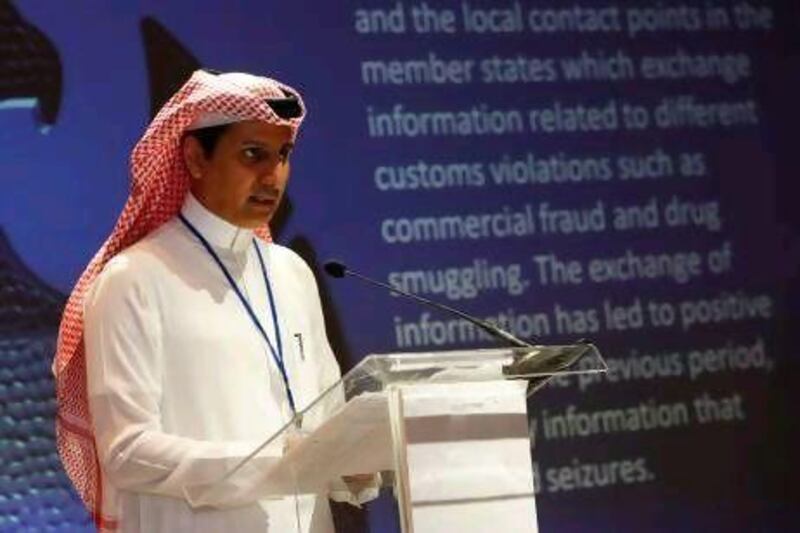DUBAI // Constant threats at borders have led countries to share more information, making it easier for Customs departments to stop dangerous items crossing their boundaries, intelligence authorities say.
"We are the first line of defence," said Abdullah Al Shaer, the director of the Customs intelligence department in Dubai. "You do not know where threats may come from but with solid platforms, updated procedures and trained staff you can minimise the threats."
Mr Al Shaer was speaking at the start of a two-day meeting of the Regional Intelligence Liaison Office - Middle East (Rilo-ME) in Dubai today.
"There are 15 million containers passing through Dubai's ports annually, therefore we use intelligence gathering, proper advanced technology and trained staff," he said.
Khalid Al Araj, director of the Rilo-ME office in Riyadh, said: "The region is witnessing a large increase in information exchange and this is due to the awareness that intelligence has become essential in customs work.
"The increase in international trade … as well as the fact that the Middle East region is fast-growing, has created a large flow of information that benefits the region."
Intelligence gathered from the UAE, Saudi Arabia, Kuwait, Qatar, Bahrain, Oman, Jordan, Syria, Lebanon and Yemen has helped to curb smuggling operations globally, the World Customs Organisation (WCO) says.
The cooperation has allowed the WCO to compile and update intelligence data in the Customs Enforcement Network (CEN) database.
"This a system that holds information shared by all WCO members and is rapidly updated," said Mr Al Araj.
Information about shipments, suspicious cargo and irregular transactions are traded between countries and regular updates are provided from other agencies to prevent illegal materials from crossing borders.
"The WCO did a campaign recently to gather information on chemical and hazardous materials that can be used for weapons and narcotics," Mr Al Araj said.
"The information was uploaded on to CEN and now provides information to customs authorities on what materials may be used illegally."
Dubai Customs officials seized 17 per cent more illegal shipments last year - 6,987 compared with 5,971 in 2010 - mainly as a result of greater sharing of information with other intelligence offices.
"The seizures included various smuggling operations of hazardous materials, drugs, counterfeit goods and money, forged documents and credit cards," said Ahmed Butti, the director general of Dubai Customs.
This year, he said, a 20 per cent increase in seizures was registered in the first quarter.
Mr Al Shaer said that in 2010, Dubai was the largest supplier of customs intelligence to countries around the world.
That same year, 14.6 tonnes of chemicals used to make cocaine and heroin were seized in the emirate. More than 70 plastic barrels of acetic anhydride and calcium carbonate emulsion were found in a container at Jebel Ali Port, arriving from an unidentified Asian country en route to a third nation.
The seizure was considered to be the largest prohibited chemicals bust by Dubai Customs.
Last month a package of forged official rubber stamps intercepted by Dubai Customs helped UK police to arrest a suspected drug dealer.
The stamps, bearing the insignia of the British High Commission in Dhaka, were uncovered customs inspectors at Dubai Cargo Village.
With them were other stamps purporting to be of the Bangladeshi High Commission in London and Cellmark, the British company that conducts DNA tests for UK visas.






